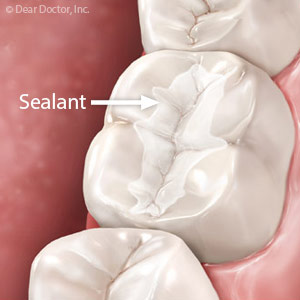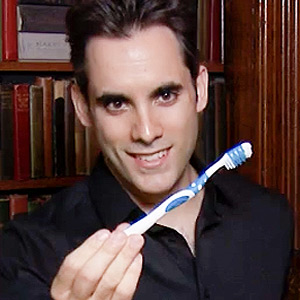

Although dental care is our primary focus, we dentists are also on the lookout for other health problems that may manifest in the mouth. That’s why we’re sometimes the first to suspect a patient may have an eating disorder.
Eating disorders are abnormal dietary patterns that can arise from mental or emotional issues, the most common being anorexia nervosa and bulimia nervosa. Each has different behaviors: Anorexics abnormally restrict their food intake (“self-starvation”), while bulimics typically eat heavily and then induce vomiting (“binge and purge”).
Although bulimics are more likely to binge and purge, anorexics may also induce vomiting. That practice in particular can leave a clue for dentists. While vomiting, powerful stomach acid enters the mouth, which can then soften and erode tooth enamel.
It’s the pattern of erosion a dentist may notice more than the erosion itself that may indicate an eating disorder. A person while vomiting normally places their tongue against the back of the lower teeth, which somewhat shields them from acid. The more exposed upper teeth will thus tend to show more erosion than the bottom teeth.
A dentist may also notice other signs of an eating disorder. Enlarged salivary glands or a reddened throat and tongue could indicate the use of fingers or objects to induce vomiting. Lack of oral hygiene can be a sign of anorexia, while signs of over-aggressive brushing or flossing may hint of bulimia.
For the sake of the person’s overall well-being, the eating disorder should be addressed through professional counseling and therapy. An excellent starting point is the website nationaleatingdisorders.org, sponsored by the National Eating Disorders Association.
The therapy process can be lengthy, so patients should also take steps to protect their teeth in the interim. One important measure is to rinse out the mouth following purging with a little baking soda mixed with water. This will help neutralize oral acid and reduces the risk of erosion. Proper brushing and flossing and regular dental visits can also help prevent dental disease.
An eating disorder can be traumatic for both patients and their families, and can take time to overcome. Even so, patients can reduce its effect on their dental health.
If you would like more information on eating disorders and dental care, please contact us or schedule an appointment for a consultation. You can also learn more about this topic by reading the Dear Doctor magazine article “Bulimia, Anorexia & Oral Health.”









